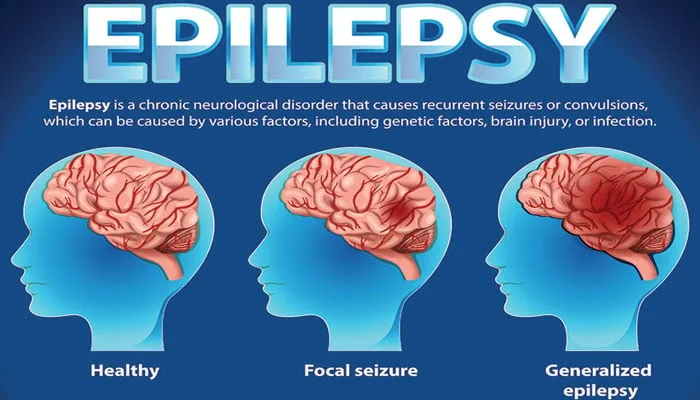Epilepsy is a disease that affects the brain. When you have epilepsy, it means you can have seizures. Anyone can have a seizure once or twice, but it doesn’t always have to be epilepsy. You will usually be diagnosed with epilepsy when you have had more than one seizure and your doctor thinks you may have more seizures.

Epilepsy can start at any age. There are many types of epilepsy. Some types last for a short time and some types can last a lifetime.
How Common is Epilepsy?
Epilepsy is one of the most common serious neurological diseases in the world. According to research, around 600,000 people in the UK and 2 million in the US are affected by epilepsy. This means that around one in 100 people in the UK and around one in 160 in the US have epilepsy.
Experts say don’t be afraid to talk about it – there are more people around you who have epilepsy or know someone who has it than you think.
What Causes Epilepsy?
Sometimes, doctors can pinpoint a specific and obvious cause of epilepsy. Possible causes of epilepsy include:
- Stroke
- Brain infection, such as meningitis
- Severe brain injury
- Problems during birth, which cause the baby to get less oxygen
But in half of the people with epilepsy, doctors don’t know the cause of their epilepsy. Some people may have a family history of epilepsy, which means they inherit it. Scientists are trying to learn more about how epilepsy can be passed on through inheritance.
What are Epileptic Seizures?
Our brains are constantly undergoing electrical activity, as brain cells send messages to each other. A seizure occurs when there is a sudden surge of electrical activity in the brain.
This can cause a temporary disruption to the normal functioning of the brain, causing the brain’s messages to become jumbled. The result is an epileptic seizure.
There are many types of seizures. In some types of seizures, you are alert and aware of what is happening around you, while in others you lose consciousness.
You may experience unusual sensations, thoughts, or movements. Your body may stiffen, you may fall down, and you may convulse. Doctors advise anyone affected by epilepsy (or their caregivers) to read as much as possible on the subject.
You may read more about Epilepsy Here:
What Causes a Stroke? Risk Factors You Can’t Ignore
The Positive Health Effects of Gardening
How is Epilepsy Diagnosed?
If your doctor thinks you have epilepsy, they should arrange for you to see a specialist who has experience in diagnosing and treating epilepsy. This doctor is usually a neurologist.
Usually, they will ask you to have a few tests. These tests will include a blood test, an EEG (a recording of your brain waves), and a brain scan. These tests help the specialist decide whether you have epilepsy and, if so, what type and cause of epilepsy you have.
But there is no single test that can determine whether you have epilepsy. In this regard, doctors advise affected people and their caregivers not to be afraid to ask questions. No matter how trivial or silly you think a question is – ask it anyway! If you don’t understand, ask them to explain until you do.
What is the Treatment for Epilepsy?
Seven out of 10 people with epilepsy have their seizures completely controlled with proper treatment. The mainstay of treatment for epilepsy is antiepileptic drugs. You may hear these medications called antiepileptic drugs, or AEDs. These medications do not cure epilepsy, but they help prevent or reduce seizures.
There are many different types of epilepsy medications. Your specialist will recommend the best medicine for you. They should tell you about how the medicine works and what the possible side effects may be.
You will usually be started on a low dose of the medicine and gradually increased until the dose works best for you. Everyone is different, and some people find that a particular type of medication doesn’t make them feel good. If this happens to you, you and your doctor will see if a different medication might be better for you.
There are other ways to treat epilepsy, but they are not suitable for everyone. These include various types of epilepsy surgeries and sometimes a special diet called a ketogenic diet, used for children.


